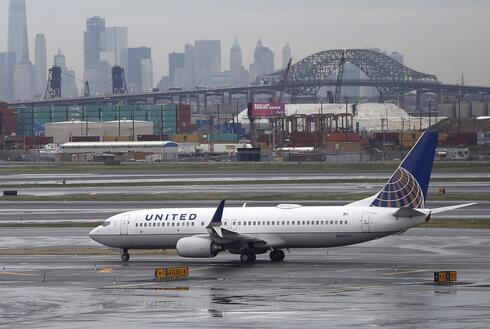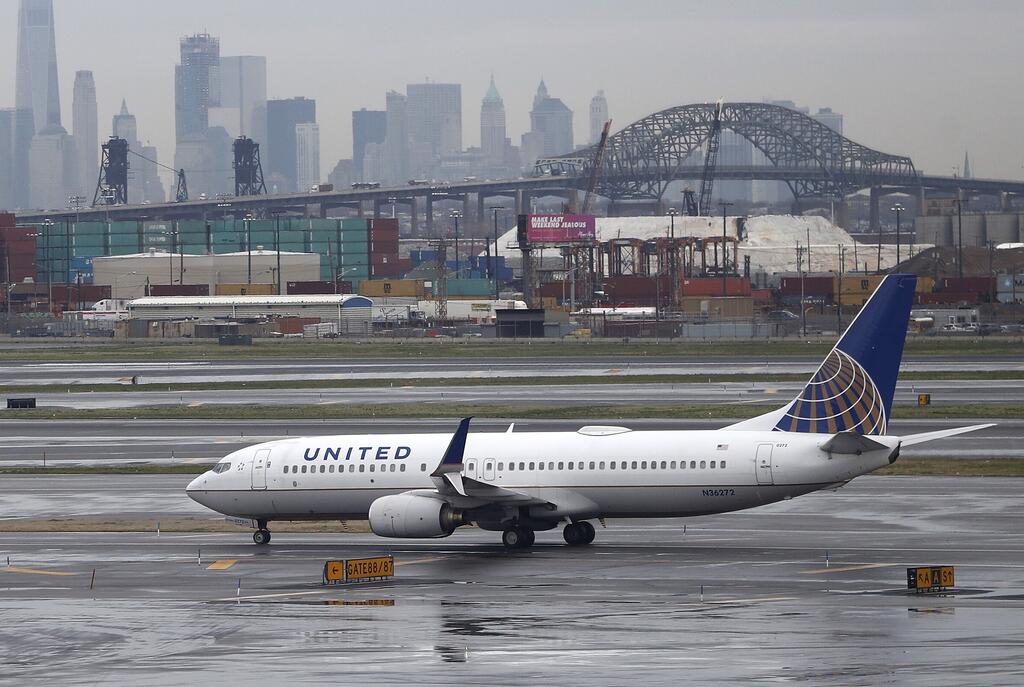
ISRAEL AT WAR
War is hell - for businesses: The impact of the Gaza war on international economy
United Airlines warns that if its flights to Israel are not resumed by November, the forecast earnings per share will fall by 25%. Delta Air Lines shares fell after the company expressed concern about rising oil prices, and the parent company of Snapchat reported that many campaigns were halted
On October 7 hundreds of murderous terrorists from the terrorist organization Hamas broke through the Israeli border from the Gaza Strip and carried out a heinous massacre of innocent Israeli civilians inside Israeli territory. In the brutal massacres, at least 1,400 Israelis were murdered - babies, children, women, and the elderly - adopting tactics reminiscent of ISIS.
Thousands more were injured and over 200 women, children, babies, seniors, and soldiers were abducted by Hamas to the Gaza Strip, with the intent of using them as bargaining chips against Israel. As the war in Gaza intensifies, the waves of its repercussions are hitting the international arena. In recent days, several giant companies have warned in their financial reports, in conversations with investors, and in other regular reports, about the effects of the situation and the growing tension in the Middle East on their businesses.
The IDF has been attacking the terrorist infrastructure of the jihadist Hamas organization in Gaza for three weeks in an attempt to collapse its hold on the Palestinian population in Gaza. The immediate impact was on the international airlines and tourism companies, most of which announced a complete halt to their operations in Israel with the outbreak of the war. The CFO of the aviation giant United Airlines stated in the company's financial reports for the third quarter of this year that, "our activity in Tel Aviv was affected by the recent events in the region, and these significantly affect our forecast. This market represents about 2% of our capacity." The company lowered its profit forecast for the fourth quarter to $1.8 per share - less than analysts' expectations before the outbreak of the events, which were more than $2 - but also warned that if flights are not resumed in November, the profit forecast is expected to be $1.5 per share.
"We have unparalleled geographic diversity, with a large U.S. network and an international network that is the largest in the long haul, both of which are profitable," said United CEO Scott Kirby. “We are seeing now with the temporary damage to margins in the fourth quarter, as a result of the tragedy in Israel."
Delta Air Lines, which also canceled all of its operations to and from Israel, published quarterly results and good forecasts, but despite this, the company's stock fell upon their publication. This is because the company presented concerns about fuel costs, among other things due to the increase in oil prices in the world with the outbreak of the war in Gaza. Since October 7, the price of a barrel has risen by about $5, and there are growing estimates that prices will continue to rise as the campaign drags on. If oil prices continue to rise, this will affect the global economy. According to the International Monetary Fund, a 10% increase in the price of oil will slow global growth by about 0.15%, and will make it difficult for countries to curb inflation.
The war also affects the world of advertising. Snap, the parent company of the social network Snapchat, announced with the results of the third quarter of this year that "due to the unpredictable nature of the war, we believe it would be imprudent on our part to provide official forecasts for the fourth quarter." The company stated that a large number of advertising campaigns were stopped immediately with the Hamas attack on Israel, and these are now a kind of "headwind" to the expected revenues in the current quarter.
The CFO of the technology giant Alphabet Ruth Porat was asked as part of an investor call if the war is expected to have effects on Google's advertising business, the company's cash cow. She refused to comment on the question, stating: "The company is currently focusing on helping its employees in the region and looking at how Alphabet products can be useful as much as possible in this very painful time." At Meta, the parent company of Facebook, Instagram, and WhatsApp did not specify official metrics, but in a conversation with investors, it was said that they recognize a certain correspondence between the slowdown in advertising spending in the fourth quarter and the development of the war. "We continue to monitor it," said CFO Susan Li. "We reflected the latest trends and the reaction of advertisers that we saw in our forecast for the fourth quarter - which we believe reflects the greater uncertainty and volatility in the landscape ahead of us."
First published: 13:04, 31.10.23














